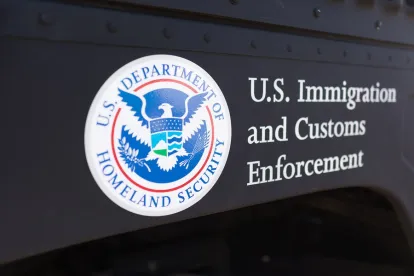FY 2022 H-1B Visa Season
“H-1B Visa Season” is upon us! Wiggin and Dana encourages employers subject to the annual quota (or “H-1B cap”) of 65,000 visas to evaluate potential employee candidates as soon as possible. Although there is now a multi-step registration system alleviating some of the time constraints with preparing complete H-1B cases in advance of the visa quota opening on April 1, employer due diligence steps for analyzing visa case viability and compliance should still be conducted in advance.
The H-1B Visa Category
The H-1B visa is for individuals serving in a “specialty occupation” requiring at least a bachelor’s degree or foreign equivalent. Accompanying family members are entitled to derivative H-4 visa classification. The visa status may be obtained for a maximum period of six cumulative years of physical presence on U.S. soil. New H-1B visas align to the fiscal year beginning on October 1, which means the earliest visa and employment start date for the current visa season for fiscal year 2022 will be October 1, 2021.
H-1B visa petitions include a Labor Condition Application (“LCA”) pre-step, in which the employer attests to complying with wage, benefits, notice, and record keeping requirements. Employers must obtain an approved LCA from the U.S. Department of Labor before submitting an H-1B petition.
By law, H-1B fees must be paid by the employer. These include a base fee of $460, a fraud prevention and detection fee of $500, and, unless exempt, a supplemental fee of $1,500 for employers with more than 25 full-time employees or $750 for those with 24 or less employees.
The Fiscal Year 2022 H-1B Visa Quota Season
The U.S. Citizenship and Immigration Services (“USCIS”) will begin its second year of online advance H-1B registration at noon on Thursday March 9th. The registration period runs until noon on Thursday March 25th. Employers subject to the annual cap must coordinate completion of the required H-1B registration form through an online H-1B “registrant” account and an account used by immigration counsel. Employers will be able to create registrant accounts beginning at noon on Tuesday March 2nd. Employers are reminded that creating a different account type, such as “sponsor,” will not allow the employer to create H-1B registrations and will prevent employers from making a registrant account using the same login details. Therefore, it is recommended that employers carefully review instructions for creating a registrant account prior to accessing the system.
If the number of H-1B registrations meets or exceeds the available visa quota, as it did in March 2020, then USCIS will conduct a random two-part lottery to select which cases will be processed toward the quota. First, USCIS will conduct a lottery of all cases, from which 65,000 registrations will be selected. Next, all registrations not selected in the regular lottery that include a “Master’s Cap” designation (for visa beneficiaries who obtained a Master’s or higher degree from a U.S. institution), will be entered into a second “Master’s Cap” lottery, from which 20,000 registrations will be selected.
Registrations that are not selected will remain in the system until the quota is met. If the registrations selected in the initial lotteries do not result in enough approvable applications to meet the quota, USCIS may conduct additional lotteries using the registrations remaining in the system, as it did for the FY 2021 registrations. For this reason, employers should not withdraw registrations or related LCAs if an employee is not initially selected. Once the quota is met, USCIS will issue a notice of non-selection to remaining registrants. If the H-1B cap is not met, then USCIS will accept cases until the quota is filled.
Although H-1B petitions for selected H-1B registrations will not be accepted by USCIS until April 1, it is important to begin preparing petitions in advance. There are a number of preliminary steps and record-keeping requirements to complete before the H-1B petition is finalized (this is especially true for employers that are start-ups, new entities, or are sponsoring H-1B petitions for the first-time).
Finally, keep in mind that there are a number of exceptions to the annual H-1B cap, including petitions by or on behalf of: institutions of higher education or affiliated nonprofit entities; nonprofit or governmental research organizations; certain employees counted against the cap during the past six years, and those already in H-1B status who are applying for an extension, amendment, or change of employer.
USCIS Delays H-1B Wage Increases and Wage-Based H-1B Visa Lottery
Pursuant to the prior administration’s “America First” immigration agenda, USCIS announced a series of new rules in October and November 2020 that would significantly alter several aspects of the current H-1B process, including the H-1B cap visa lottery and the required minimum wages to be paid to employees sponsored for H-1B visas.
Although the Biden administration could pause implementation of the rules for a longer period, following litigation and subsequent revisions to date, both rules are slated to take effect in 2021, The first rule revises the method of calculation of required wages for H-1B, H-1B1, E-3 and PERM positions, and will result in a significant increase in the required minimum wage to be paid employees sponsored for the aforementioned employment-based immigration processes. This rule is set to take effect March 15, 2021, with wage increases to be phased in over several years, beginning July 1, 2021.
Pursuant to the second new rule, the H-1B selection process will change from a random two-part lottery to a wage-based selection process, prioritizing H-1B positions at the highest wage levels. Under the new wage-based system, potential H-1B visa beneficiaries who are at an “entry-level” wage may not be able to secure H-1B status, as the quota would likely be met by beneficiaries at higher wage levels.
While these rules are currently still scheduled to take effect, implementation is subject to delay, revision, or revocation. Further litigation is expected, and as the Biden administration issues new rules and policies impacting immigration, additional changes are expected prior to the FY 2023 H-1B lottery. For up to date information on these changes, employers should periodically review the USCIS website.
FY 2022 H-1B Registration Dates
-
March 2, 2021 (noon ET): employers can begin making “registrant” accounts
-
March 9, 2021 (noon ET): registration period opens
-
March 25, 2021 (noon ET): registration period closes
-
March 31, 2021: USCIS will finish notifying selected registrants
-
April 1, 2021: USCIS will begin accepting H-1B petitions for selected registrations (the deadline for filing an H-1B petition for a selected registrant will be noted on the Selection Notice).
FY 2022 H-1B Registration Process
-
Employers create a MyUSCIS account as a “Registrant” to begin the registration process.
-
Multiple beneficiaries can be added to a single registration, employers should not make a separate account for each beneficiary.
-
An employer should register each beneficiary only once, otherwise every registration that the employer files for that beneficiary will be invalidated (different employers may register the same beneficiary once each).
-
Employers must pay a $10 registration fee per beneficiary.
-
For employers who are working with immigration counsel, the attorney will complete the registration and submit the fee and registration.
-
Employers are reminded to only register employees who they plan on sponsoring for an H-1B, as failure to file an H-1B petition for a selected registrant is a red flag for USCIS.
For additional information about the FY 2022 H-1B lottery process and requirements, visit the USCIS web page here.





 />i
/>i
